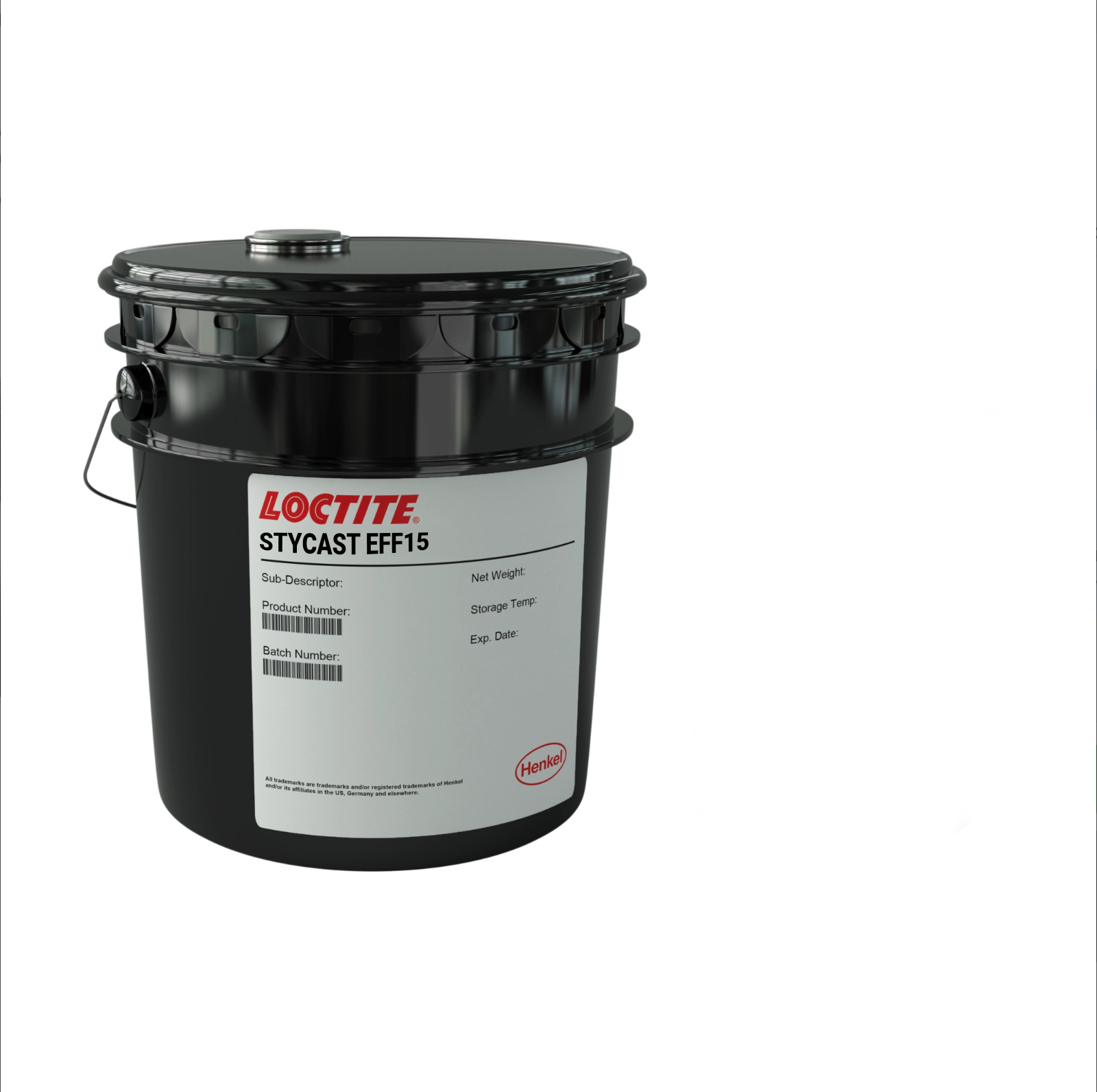LOCTITE STYCAST EFF 15
Harmonization Code : 3907300090 | Polyacetals, other polyethers and epoxide resins, in primary forms; polycarbonates, alkyd resins, polyallyl esters and other polyesters, in primary forms
Main features
- Excellent dielectric properties
- Low stress
- Low shrinkage
Product Description
LOCTITE STYCAST EFF 15 is an epoxy based free flowing syntactic foam powder is designed to be able to infiltrate around densely packed components and fill voids in electronic modules.
LOCTITE STYCAST EFF 15 exhibits low shrinkage during cure so that little stress is transmitted to the embedded components. This material self extinguishes after an external flame is removed.
Cure Schedule
- 24 hours @ 100°C
- 4 hours @ 120°C
- 2 hours @ 150°C
Technical Specifications
| General Properties | |
| Density (g) | 0.24 g/cm3 |
| Thermal Properties | |
| Thermal Conductivity Thermal Conductivity Thermal conductivity describes the ability of a material to conduct heat. It is required by power packages in order to dissipate heat and maintain stable electrical performance. Thermal conductivity units are [W/(m K)] in the SI system and [Btu/(hr ft °F)] in the Imperial system. | 0.12 W/m.K |
| Electrical Properties | |
| Dielectric Strength Dielectric Strength Dielectric strength is measured in kV per mm and is calculated by the Breakdown voltage divided by the thickness of the tested material. Those two properties go hand in hand and while Breakdown voltage is always thickness dependent, dielectric strength is a general material property. As an example, the dielectric strength of Polyimide is 236 kV/mm. If we place 1mm of Polyimide between two electrodes, it will act as an insulator until the voltage between the electrodes reaches 236 kV. At this point it will start acting as a good conductor, causing sparks, potential punctures and current flow. | 7.9 kV/mm |



